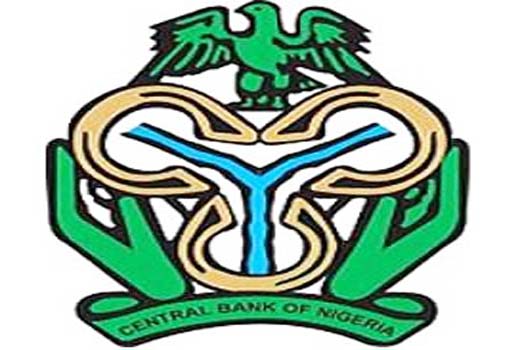Why the Independence of the Central Bank is Crucial for Economic Stability

The proposed amendments to the Central Bank of Nigeria (CBN) Act of 2007, which aim to place monetary policy decisions under the control of the Minister of Finance, threaten to undermine the very foundation of economic stability in Nigeria. These amendments, if enacted, would strip the CBN of its independence, a cornerstone of sound monetary policy. This move has sparked widespread criticism from economists, business leaders, and international bodies like the International Monetary Fund (IMF).
The core issue with the proposed amendments is the establishment of a Coordinating Committee for Monetary and Fiscal Policies, chaired by the Minister of Finance. This committee would override the CBN’s authority to set interest rates independently, thereby compromising its ability to achieve its primary mandate of price stability. The IMF has rightly noted that this change could severely undermine the CBN’s autonomy and its Monetary Policy Committee, which is crucial for making objective and economically sound decisions.
Historical Lessons from Other Nations
The experiences of countries where central bank independence has been compromised provide a stark warning. Argentina, Turkey, Venezuela, and Zimbabwe have all suffered severe economic consequences due to politically influenced central banks.
Argentina: The Banco Central de la República Argentina (BCRA) has been repeatedly influenced by political leaders, leading to chronic inflation, currency devaluation, and economic crises. The lack of independence has eroded investor confidence, exacerbating economic instability.
Turkey: President RecepTayyip Erdogan’s influence over the Central Bank of the Republic of Turkey (CBRT) has led to interest rate policies that defy economic recommendations. Erdogan’s belief that high interest rates cause inflation has resulted in repeated rate cuts, even amid rising inflation. This has driven inflation to alarming levels, hitting 68.5 percent in March 2023, and severely destabilized the Turkish economy.
Venezuela: The Banco Central de Venezuela (BCV) has been tightly controlled by the government, leading to one of the most severe hyperinflation episodes in history. The BCV’s extensive money printing to finance government spending has resulted in hyperinflation, with rates peaking at over 1,000,000% in 2018. This has led to widespread poverty, food shortages, and mass emigration.
Zimbabwe: Similarly, Zimbabwe’s central bank has been used to finance government deficits, leading to hyperinflation and economic collapse. The Zimbabwean dollar became worthless, and the economy was left in ruins.
These examples illustrate the critical importance of central bank independence in maintaining economic stability. When central banks are free from political interference, they can make decisions that prioritize long-term economic health over short-term political gains.
The Nigerian Context
Nigeria’s economic challenges are well-documented. The country faces high inflation, unemployment, and a volatile currency. The CBN’s independence is crucial in navigating these issues. An autonomous central bank can implement policies that control inflation, stabilize the currency, and foster investor confidence. This is particularly important in Nigeria, where unorthodox monetary policies in recent years have already eroded confidence.
The proposed amendments threaten to exacerbate these issues by allowing fiscal needs to dictate monetary policy. This could lead to suboptimal policy decisions that prioritize short-term government financing over long-term economic stability. The restriction of the CBN’s ability to set interest rates independently is particularly concerning. Interest rate decisions are critical for controlling inflation and ensuring economic stability. By placing these decisions in the hands of the Minister of Finance, the amendments risk politicizing monetary policy and undermining its effectiveness.
The Importance of Investor Confidence
Investor confidence is vital for economic growth. Countries with independent central banks are more likely to earn the trust of investors, who seek stable and predictable economic environments. The experiences of countries without central bank independence show that they struggle to attract and retain investment. An independent CBN is essential for maintaining investor confidence in Nigeria.
A foreign fund manager based in South Africa highlighted this point, stating, “An independent central bank is the accepted practice the world over. Countries without it never really earn the trust of investors.” This sentiment is echoed by many economists and business leaders who understand the importance of central bank autonomy in ensuring sound monetary policy and economic stability.
Policy Recommendations
To ensure Nigeria’s economic stability and growth, it is imperative to maintain the independence of the CBN. This can be achieved by:
Preserving the CBN’s Authority: The CBN should retain its authority to set interest rates and implement monetary policy independently; this is crucial for controlling inflation and maintaining economic stability.
Strengthening Oversight Without Political Interference: While oversight is important to ensure accountability, it should not compromise the CBN’s independence. Mechanisms can be put in place to enhance transparency and accountability without subjecting the bank to political control.
Building Investor Confidence: Maintaining an independent central bank will help build and sustain investor confidence. This is crucial for attracting foreign investment and fostering economic growth.
Learning from Global Experiences: Nigeria should learn from the experiences of countries where central bank independence has been compromised. The negative outcomes in Argentina, Turkey, Venezuela, and Zimbabwe provide valuable lessons on the importance of central bank autonomy.
In conclusion, it is safe to say that the proposed amendments to the CBN Act pose a significant threat to Nigeria’s economic stability. By undermining the CBN’s independence, these changes risk politicizing monetary policy and leading to suboptimal economic outcomes. The experiences of other countries demonstrate the detrimental effects of politically influenced central banks. To ensure sound monetary policy, control inflation, and maintain economic stability, it is crucial to preserve the independence of the CBN. This will not only enhance investor confidence but also support Nigeria’s long-term economic growth and development.




